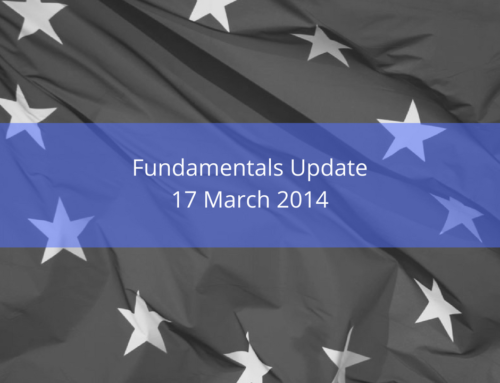US Snapshot December 2013
Fundamentals Update as at 11 December 2013 by Lorenzo Beriozza
US government budget negotiations will likely lead the market risks next week regarding the prospects of a deal just yet, and the real deadline is not until at least mid-January by which point a new funding agreement must be in place before triggering emergency measures by the US Treasury and in order to avert default. After the House of Representatives reconvened last Monday, the Senate reconvenes this coming Monday and both chambers face a very busy legislative schedule before the House’s mid-December Christmas recess. It’s possible but it is unlikely that an agreement will be reached in time, and details about ongoing negotiations are sparse. This would require that the chambers either sit through all or part of the holiday season or revisit negotiations early in the new year. It’s also not clear that the Republicans will be more cooperative this time, in part as they smell blood in Obamacare. Even if the two sides are closer than previously, an agreement is probably at least weeks away. Ongoing fiscal policy uncertainty is likely to be among the factors delaying Fed tapering, alongside concern over Q4 fundamentals and in light of Janet Yellen’s very dovish testimony during her confirmation hearing.
Insofar as the tapering debate is concerned, also consider that while the jobs part of the Fed’s dual mandate is somewhat better, the price stability half is going the other way as measures like the Fed’s preferred price deflator to total personal consumption expenditures continued to drop to 0.7% YoY as of October. Strengthened reference is expected to falling inflation concerns in the December FOMC statement. Recall that the Fed has introduced new QE programs specifically to counter disinflation/deflation risks and they will not pulling back on this QE program when that same risk exists now. Further, Yellen’s testimony during her first confirmation hearing was not near-term data dependent, as she spoke of progress but that there remained a need for much further progress. If the Fed tapers in December or January following such dovish comments, then Fed communications would be scored rather poorly in the wake of Yellen’s testimony that also barely paid lip service to QE criticisms. Before she takes office in February, Bernanke is unlikely to want his swan song to be tapering given his years of warning about avoiding premature policy withdrawal as in Japan over the 1990s. Also consider that economic growth probably peaked in Q3 as growth gets chopped in half in Q4 on inventories and government cutbacks like 1995Q4. Lastly, bond markets are perhaps getting too pushy again with too much of a rate shock too soon. The Fed can let the market tighten a bit without doing any tapering and is unlikely to rush in order to counter excess bullishness in rates.
A vote on Janet Yellen’s confirmation may also be held next week given its guidance that a vote will beheld at some time in December. The vote is likely to sail through the Democrat-controlled chamber.
Source: Scotia Bank


